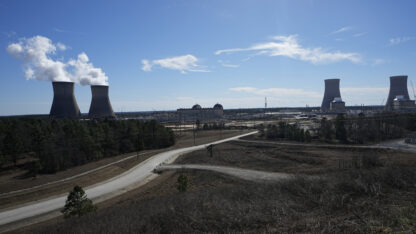Atlantans March To Protest Dakota Access Pipeline Project

Tasnim Shamma / WABE
North Dakota’s Standing Rock Sioux Reservation is 1,500 miles away from Atlanta, but nearly 200 people marched downtown Tuesday to protest a Dakota Access Pipeline project.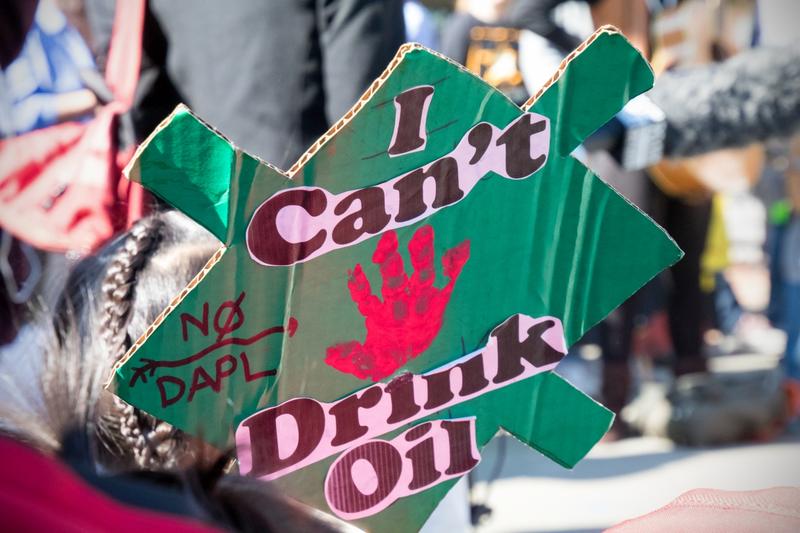
Atlanta environmental activists said they’re concerned about the impact of a pipeline on the reservation’s water supply and sacred lands.
Activists also said they worried about loss of environmental protections in metro Atlanta under President-elect Donald Trump, who is not convinced of scientific evidence supporting climate change.
Everette Thompson of East Point is with the climate change advocacy group 350.org. He said what’s happening in North Dakota is tied to Georgia, where there is debate over two pipeline projects.
“Wherever and whomever is in the office, not just on a federal level but on the state level, we’re going to continue to fight because we know that climate change is real,” Thompson said.
Letter To SunTrust
Protesters chanted “We stand with Standing Rock” and “Water is life” as they marched from the CNN Center. When they arrived in front of SunTrust Bank headquarters, chants changed to “Defund the pipeline!”
Protesters set up an altar with flowers outside the building and delivered a letter to a SunTrust Bank executive who said he would give it to CEO Bill Rodgers.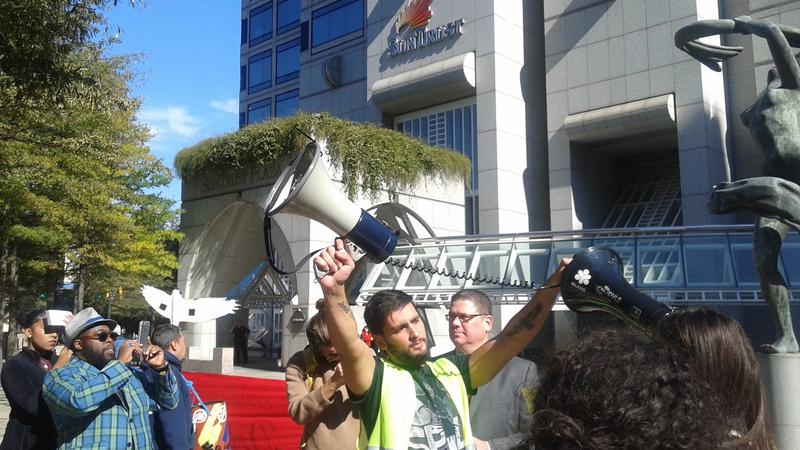
The letter demanded that the bank stop financing the $3.8 billion Dakota Access Pipeline project. The letter alleges SunTrust Bank invested $4.3 million in the project.
Protester Tony Thaxton Jr. said what happens in North Dakota could affect what happens in Georgia.
“Just like with the Chattahoochee River now, with Alabama, Georgia and Florida having concerns about the water,” Thaxton said. “We’re all in this together, so what happens in North Dakota, South Dakota will eventually affect us down here also with our environment.”
Environmental Action
Thompson said metro Atlanta activists are now redoubling their efforts to protect the environment.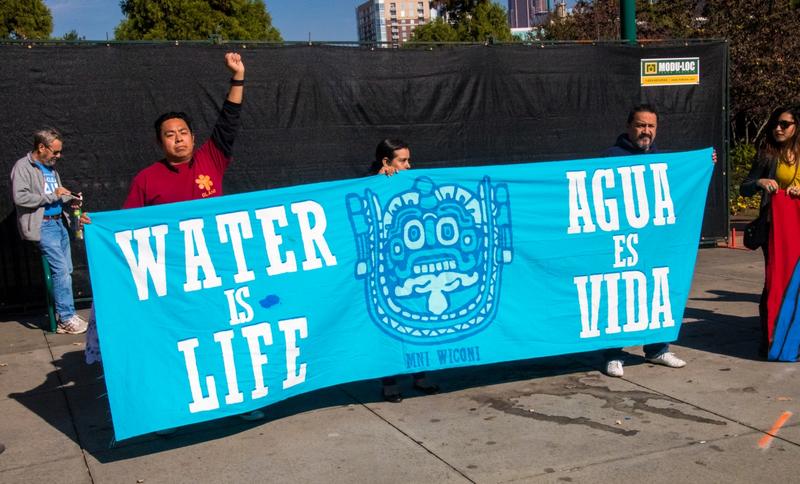
“Digging up oil and taking fossil fuels from the ground is hazardous. It has severe health impacts,” he said. “In every state, we have to keep the oil in the ground, and we have to continue to be fossil fuel resisters and really transform how we’re living.”
Atlanta resident Will Mason brought a small wind turbine to the protest. He said, with President-elect Donald Trump taking over the White House, there’s now a need for “broad coalition building.”
“We need to be in solidarity. We need to recognize that we’re all members of the working class. That’s what we have in common. We all want the basic necessities for our families,” Mason said. “We need a clean environment. And that’s what it’s about.”
The Palmetto Pipeline, which was to run along Georgia’s coast, is on hold. State lawmakers have put a moratorium on petroleum pipeline construction here. But a proposed natural gas pipeline running through 159 miles of west Georgia, the Sabal trail, is in development.
Sacred Land
Danelle Killsback is a registered member of the federally-recognized tribe, the Northern Cheyenne Nation of Montana. She recently moved to Johns Creek in north Fulton County and brought her two young children to the protest.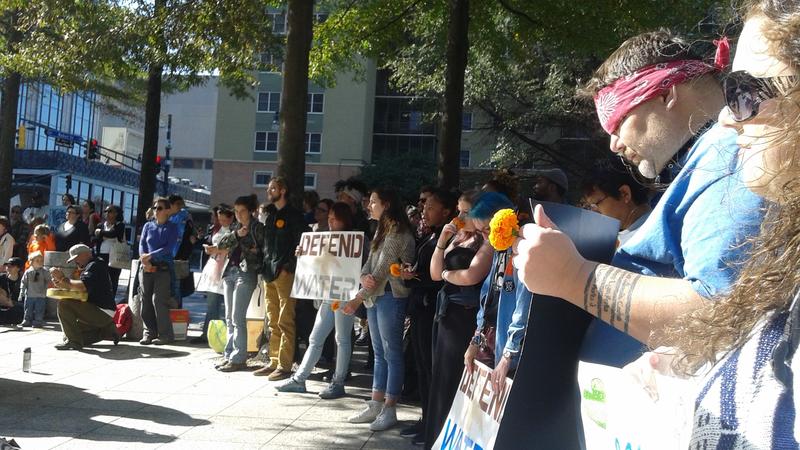
The 1868 Fort Laramie Treaty guarantees the Standing Rock Sioux Tribe in North Dakota “absolute and undisturbed use and occupation.” She’s concerned about the pipeline’s impact on the water supply.
“The fact that the Dakota Access Pipeline isn’t honoring the treaty is disheartening and makes me angry,” Killsback said. “I like that the Dakota children are really invested in it, and those are the kinds of kids I hope to raise: those that stand up for treaties, indigenous and environmental rights and ensure that their cultural resources are preserved.”
She called it a “David and Goliath” situation with banks like Atlanta-based SunTrust financing the pipeline projects.
“They said there’s a pipeline coming through [here in Georgia], what are we going to do if we don’t have clean water?” Killsback asked. “The rich people are going to be afford clean water and our children might not be able to? I think that’s something everyone needs to get behind, not just indigenous people.”
Kevin Cruz is a student at Georgia State University. He joined the march when he saw the protesters after he got out of class. He’s been following the worldwide protests of the Dakota Access Pipeline on Instagram.
“Pipelines have been known to have leaks and if oil gets in the water, then that’s going to affect people on sacred land,” Cruz said. “Native Americans have been mistreated since the beginning of the United States, and this cannot continue any longer.”
9(MDAxODM0MDY4MDEyMTY4NDA3MzI3YjkzMw004))




